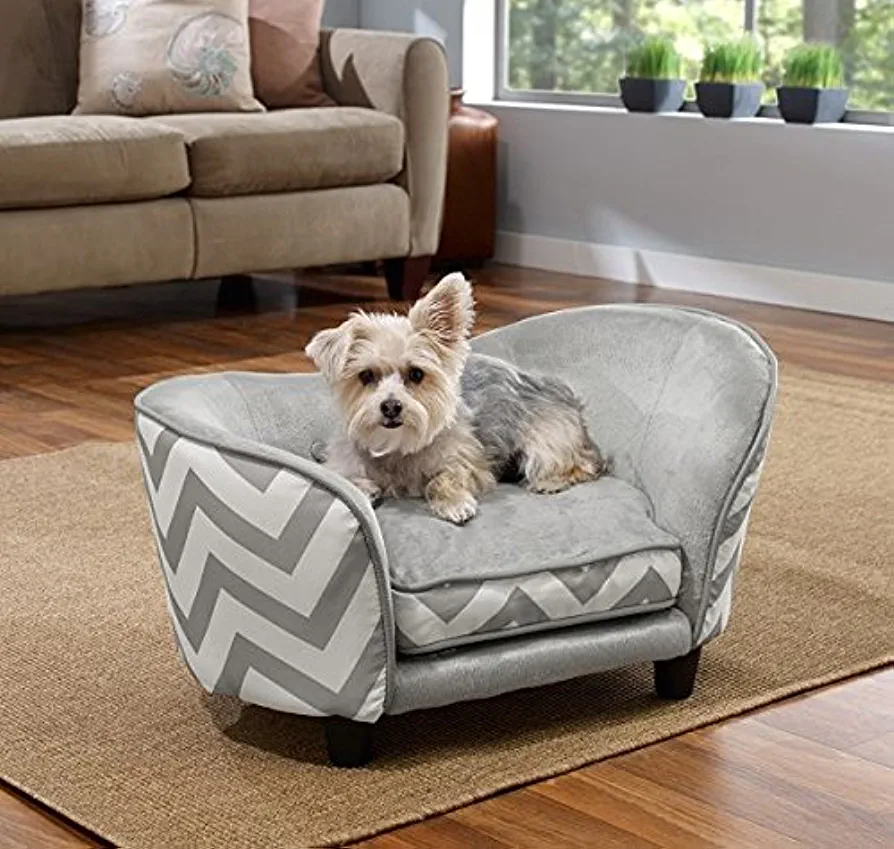Imagine this scenario: you come home after a long day at work, eager to relax on your comfy bed. But have you ever wondered if your furry friend feels the same way about their sleeping spot? Are they secretly longing for a soft haven or do the firm foundations of a hard bed provide them with the ultimate comfort? In this article, we will explore the age-old question of whether dogs prefer hard or soft beds, shedding light on their sleeping preferences and providing you with insights into the best choice for your canine companion.
Factors that influence a dog’s bed preference
When it comes to choosing a bed for your furry companion, it’s important to consider several factors that can influence their preference. These factors include their physical health, breed characteristics, age and mobility, the temperature and climate they live in, as well as their sleeping position. By taking the time to understand and analyze these factors, you can ensure that you select the perfect bed for your beloved canine friend.
Physical health
One of the primary factors to consider when choosing a bed for your dog is their physical health. If your four-legged friend suffers from joint pain or arthritis, a softer bed may be more beneficial as it provides cushioning for their joints and reduces pressure points. On the other hand, if your dog is healthy and has no specific health concerns, a firmer bed may be a suitable option.
Breed characteristics
Different dog breeds have varying physical characteristics and preferences. Some breeds, such as Greyhounds, have lean bodies and minimal body fat, making them more prone to discomfort on hard surfaces. In contrast, breeds with thick coats, like Huskies, may prefer a cooler surface to help regulate their body temperature. Understanding your dog’s breed characteristics can help guide you in selecting a bed that suits their specific needs.
Age and mobility
As dogs age, their mobility tends to decrease, and they may experience joint stiffness or arthritis. Older dogs may benefit from softer beds that provide extra support and cushioning for their aging joints. Puppies, on the other hand, may prefer a softer bed as they are still developing and need a comfortable surface for their growing bodies.
Temperature and climate
The temperature and climate in which your dog resides can also impact their bed preference. For dogs living in warmer climates, a bed with cooling properties, such as breathable fabric or gel-infused foam, can help prevent overheating. Conversely, dogs in colder climates may benefit from a warmer, insulated bed to keep them cozy during chilly nights.
Sleeping position
Just like humans, dogs have their own preferred sleeping positions. Some dogs prefer to curl up in a ball, while others sprawl out and take up as much space as possible. Paying attention to your dog’s natural sleeping position can help determine whether they would be more comfortable on a softer or firmer bed. For dogs that curl up, a soft bed can provide them with the comfort and support they need, while dogs that stretch out may enjoy the extra space and firmness of a harder surface.

Benefits of hard beds for dogs
While many dog owners lean towards providing their furry friends with soft and plush beds, there are several benefits to consider when it comes to hard beds for dogs.
Proper spinal alignment
Hard beds provide better support for a dog’s spine and help maintain proper alignment. This is especially important for dogs with back issues or those prone to spinal conditions. By offering a firm surface, hard beds can alleviate pressure points and promote proper spinal alignment, ensuring your dog’s comfort and overall well-being.
Cooling effect
Dogs with thick fur or those living in warm climates can benefit from the cooling effect of a hard bed. Unlike soft beds, which can retain heat, hard beds provide better airflow and prevent your dog from overheating. This can be particularly beneficial during the summer months or for breeds that are more susceptible to heat-related issues.
Improved hygiene
Soft beds tend to absorb and retain odors, making them more challenging to keep clean and fresh. In contrast, hard beds are easier to clean and maintain, as they often have removable covers or can be wiped down with ease. This can help prevent the build-up of bacteria and parasites, ensuring a more hygienic sleeping environment for your furry companion.

Benefits of soft beds for dogs
While hard beds have their advantages, soft beds offer unique benefits that can greatly enhance your dog’s comfort and well-being.
Comfort and coziness
Soft beds provide a cloud-like experience for your dog, offering cushioning and a cozy surface to relax on. Dogs, especially those with a tendency to curl or snuggle while sleeping, often find comfort in the plushness of a soft bed. The extra padding can mimic the feeling of being cradled, promoting a sense of security and tranquility.
Cushioning for joints
Dogs, especially those with joint pain or arthritis, can benefit from the cushioning effect of a soft bed. The extra padding helps reduce pressure on their joints, providing relief and comfort. Additionally, soft beds can be particularly beneficial for older dogs, as they offer more support and alleviate discomfort.
Warmth and insulation
If you live in a colder climate or have a dog that is naturally more sensitive to the cold, a soft bed can provide them with the warmth and insulation they need. The plush materials trap heat, creating a cozy environment that keeps your furry friend snug during chilly nights. This added warmth can be especially appreciated by smaller or short-haired breeds that struggle to retain body heat.

Individual dog preferences
While considering the various factors and benefits of hard and soft beds is essential, it’s important to remember that each dog is unique and may have their own personal preferences. To truly gauge your dog’s bed preference, it is crucial to observe their behavior and monitor their comfort levels.
Observing behavior and preferences
Take the time to observe how your dog behaves around different types of beds. Do they eagerly climb onto a soft bed but avoid a harder surface? Are they constantly moving and adjusting their position on a particular bed? These behavioral cues can provide valuable insight into what type of bed your dog finds most comfortable.
Trial and error approach
Sometimes, the best way to determine your dog’s bed preference is through a trial and error approach. Consider trying both hard and soft beds, and monitor your dog’s behavior and level of comfort with each. This will allow you to make an informed decision based on their individual needs and preferences.

Considerations for dog owners
As a responsible dog owner, there are a few additional considerations to keep in mind when selecting a bed for your furry friend.
Consulting with a veterinarian
Before choosing a bed, it’s always a good idea to consult with your veterinarian. They can provide valuable insights into your dog’s specific needs, especially if they have any pre-existing health conditions. Your vet may recommend a certain type of bed that will best support your dog’s health and well-being.
Choosing an appropriate bed
When selecting a bed, opt for high-quality options that are designed with your dog’s comfort and safety in mind. Look for beds that are durable, easy to clean, and made from materials that are hypoallergenic and non-toxic. Additionally, consider the size and weight of your dog when choosing a bed to ensure it provides adequate support.
Maintaining hygiene
Regularly cleaning your dog’s bed is essential for maintaining their hygiene and preventing the buildup of allergens and parasites. Opt for beds with removable, machine-washable covers, or beds that can easily be wiped down. This will help keep your dog’s sleeping environment clean and fresh.

Conclusion
Choosing the right bed for your beloved dog is crucial to their overall comfort and well-being. By considering factors such as your dog’s physical health, breed characteristics, age, and sleeping position, as well as the benefits of both hard and soft beds, you can make an informed decision that caters to their individual needs. Remember to observe your dog’s behavior and preferences, consult with your veterinarian, and prioritize hygiene and cleanliness to ensure your furry friend has a cozy and comfortable place to rest.
